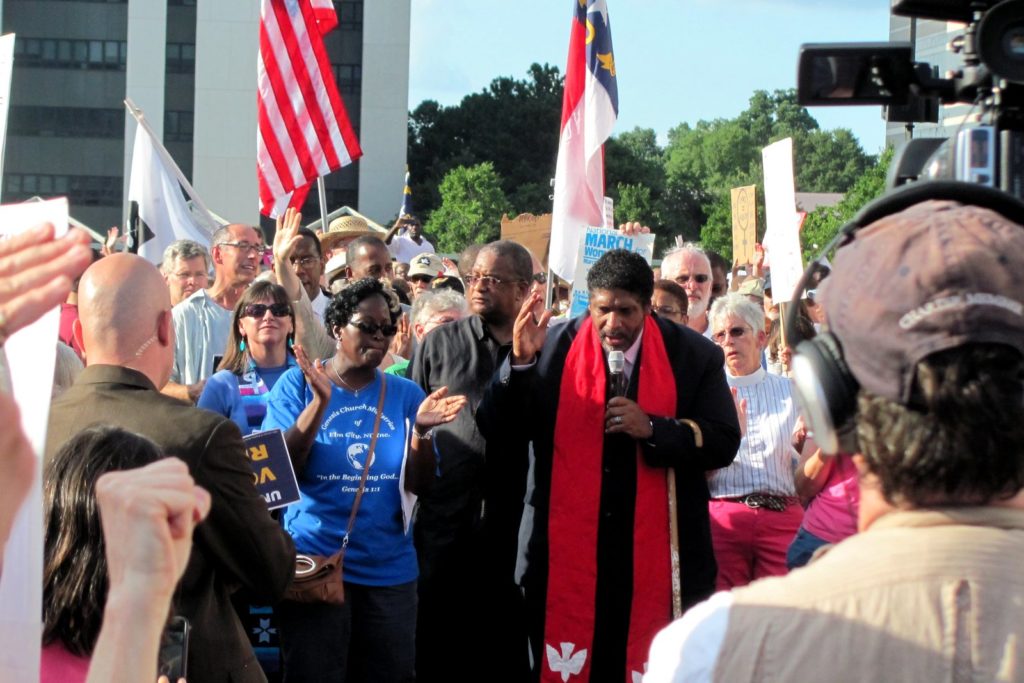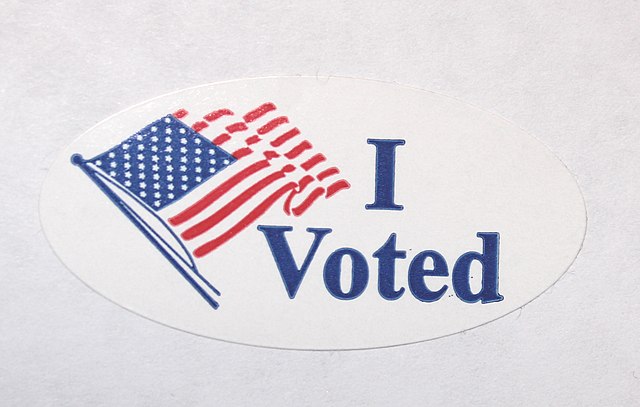
What We Owe the Democracy: Martin Luther King, Jr., the Right to Vote, and the Call to Civic Duty
Atiba R. Ellis
Photo from Wikimedia Commons
The right to vote is a contested concept in American society. The choices made by elected federal and state governments, on the behalf of “We the People” as to who is not included in our democracy both construct American citizenship and reflect American democratic values. The contest around the right to vote, called “the voting wars” by some, becomes a conflict around values that led some to perceive the threat of a perverted democracy and lead others to seeing the rise of an era of voter suppression.
Ultimately, this discourse is about the meaning of citizenship, and sadly, it is inherently partisan and driven by an identity politics concerning the worthiness required to cast a vote. Indeed, the rhetoric invoked by many when it comes to concerns around the right to vote is dominated by (perceived) threats to integrity of the political process posed by unclearly named persons or groups who will overwhelm and pervert the process through acts of fraud. This rhetoric about election integrity is often directed at people of color, recent immigrants, and other people on the margins of the American political community. The response to such accusations, beyond stating the fact that the voter fraud epidemic does not exist, reflects a concern about the imposition of a “new Jim Crow” where people of color, particularly poor people and recent immigrants of color, are intimidated in the process in unfair and unjustifiable ways in the name of maintaining a racial hierarchy.
Obviously, this is not new. But there is a deeper concern here that I wish to address in this essay. These battles about inclusion in the vote shape not only who is included in the franchise but also shape the meaning of American democracy. These battles illustrate the structure of racial discrimination and subordination in American history and they implicate the meaning of our civic duty to vote, which I take as our obligation as citizens of the United States and thus belonging to the American community to participate through exercising the franchise and to meaningfully engage in civic governance. In this essay, I will argue that these battles, read through the vision of civil rights articulated in the mid-twentieth century civil rights movement, make clear the obligation that we in America not only have an obligation to each other to vote, we have an obligation to ensure that others on the margins on society can vote through challenging rules that arbitrarily exclude persons who may be marginalized.
These battles about inclusion in the vote shape not only who is included in the franchise but also shape the meaning of American democracy.
In this moment of raising the stakes of understating our democracy, especially within a pandemic, and at the same time thinking about the reckoning around race that has also been ongoing in this period, the civic duty to vote and its interrelationship with democratic inclusion has a heightened importance.
The quest for inclusion in American democracy as a means for transformation of the American ideal has moral roots. While there is a long history of this quest, probably the most notable example of this claim comes from our most iconic period of racial unrest — the Civil Rights Movement of the 1950s and 60s. Indeed, in a speech entitled “Give Us the Ballot” by Dr. Martin Luther King, Jr., he argued that America – and particularly the American segregated South – could be transformed through aggressive federal intervention to ensure Black voting rights that could create a majority to vote out Jim Crow. While there are other examples to which I could point to discuss this legacy, I believe King’s speech speaks particularly to the moment in which we find ourselves in 2020.
King’s complaints about voter suppression echo today’s voting wars: “But, even more, all types of conniving methods are still being used to prevent Negroes from becoming registered voters.” At the time, the litany of devices used to disenfranchise African Americans included poll taxes, literacy tests, understanding tests, registrar discretion to exclude, voter challenge statutes, and violent and non-violent voter intimidation. These forms of intimidation and exclusion had tacit sanction from many states in the South and proved a tremendous barrier for voting rights.
This urge to the franchise, however, was a launching point for a larger discourse about the meaning of American democracy and inclusion. King suggested that voting was a “sacred right.” And that to deny it to African Americans was “a tragic betrayal of the highest mandates of our democratic traditions and it is democracy turned upside down.” He went further to describe the agency that is intrinsic to voting rights and how that in itself implicates the meaning of citizenship: “So long as I do not firmly and irrevocably possess the right to vote I do not possess myself. I cannot make up my mind — it is made up for me. I cannot live as a democratic citizen, observing the laws I have helped to enact — I can only submit to the edict of others.”
Implicit in King’s vision was also empowerment for both the individual voter and the community of African American voters to implement the mandate dictated by the U.S. Supreme Court in Brown v. Board of Education, which was new and faced massive resistance from virtually all Southern states. The heart of the speech was King’s request that the federal government ensure voting rights – to “give us the ballot” – and with the control of the political apparatus that would follow, this new majority would implement Brown, transform the southern judiciary that stood against civil rights, oppose white supremacist terrorism, and make racial justice a reality.
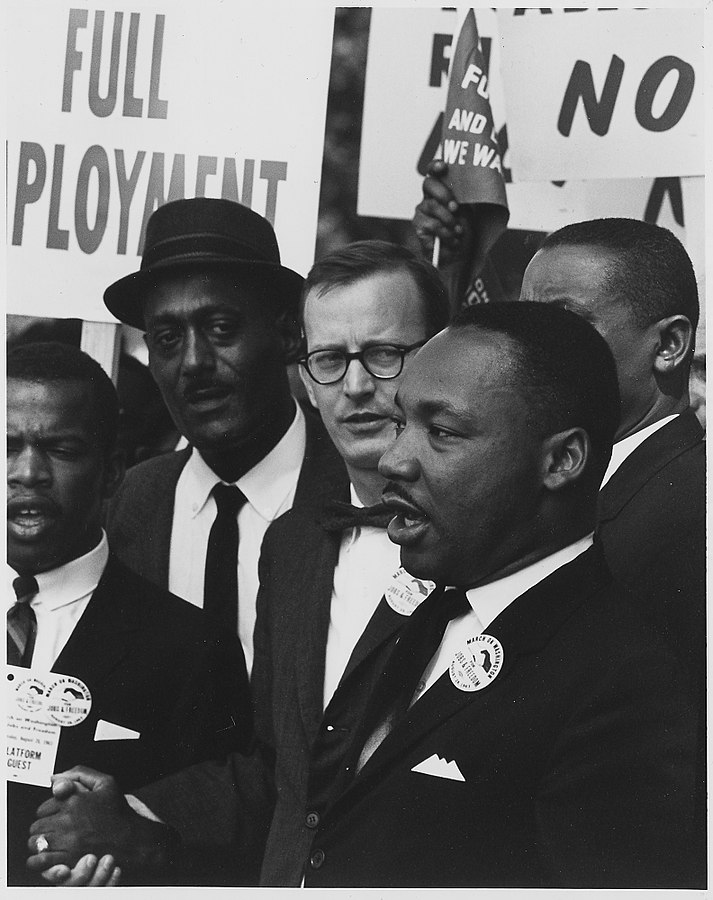
For King, this shaping of the new America required moral leadership from across the political spectrum. Both the Democratic Party for its placation of Dixiecrats and the Republican Party for being moderate in the name of owning conservative views fell under King’s critique. And King’s demand for leadership was rooted in love and building community. Consistent with the premises of the Southern Christian Leadership Conference-rooted activism, King urged this movement towards community as one rooted in the love towards all, with the hope that there would be a reconciliation between Blacks and whites based on “mutual respect.” Implicitly, this is a message of liberation for the entirety of humanity, the creation of a “society in which all men will live together as brothers and respect the dignity and worth of human personality.”
King’s vision from 1957 in “Give Us the Ballot” speaks significantly to a number of our democratic crises in twenty-first century America. Part of the challenge that we now face comes from this core call — for a society that respects the dignity and worth of human personality. Certainly, this is the moral precept I hear when I watch the protests and demonstrations around the #BlackLivesMatter that happened over the summer of 2020. In essence, this focus on the human worth of African Americans targeted by the police represents a failure of such worth throughout society. Indeed, for some this also echoes the line of police brutality and sanctioned terrorism that was part of the pattern of racial subordination to which King spoke, and which existed throughout American history. Reading our moment through King’s lens centers us on this problem.
Of course, this problem becomes more complicated in the light of thinking about how collective self-governance ought to evolve when having to answer this call for dignity and equality. For advocates of more expansive voting rights, this call remains unanswered. For them, the problems posed by voter identification, voter purges, and felon disenfranchisement (among other devices) represent the resilience of the “conniving methods” to prevent people of color from voting. In my own work, I have described this evolution through considering how heightened regulations around voting hyperregulate the process of participation in such a way that those who do not have the ability to meet those regulations – those who cannot pay the “cost of the vote” are effectively excluded. This is, in essence, tracing the line from de jure exclusion of people on the margins of American society from political power to two eras of de facto exclusion of people who, whether because of their status, their lack of wealth, or both, cannot participate in the process.
King reminds us that this exclusion has moral and ethical ramifications. Disenfranchisement strips the person excluded of their agency as a citizen. It effectively creates a second-class status for them within the political community. Others, who may or may not have their interest at heart, make decisions for them. And the disenfranchised can become the effective means for others to gain political and societal ends. Their objectification serves as an excuse to abuse this minority.
Take prison gerrymandering as an example. Prison gerrymandering is the counting of incarcerated prisoners for census purposes in the areas where they are incarcerated rather than in their home communities. The prison population bolsters the political power of the communities where these prisons are, which benefits the communities that host the prisons — often rural and largely white communities. Of course, the prisoners (in a system where over two-thirds of prisoners are people of color) have no say in this and no vote in the system that governs them. Thus, these bodies become objects in a political calculus and a means to the ends of political power, economic support (though the existence of the prison and the jobs and income that it brings) and the reinforcement of mass incarceration.
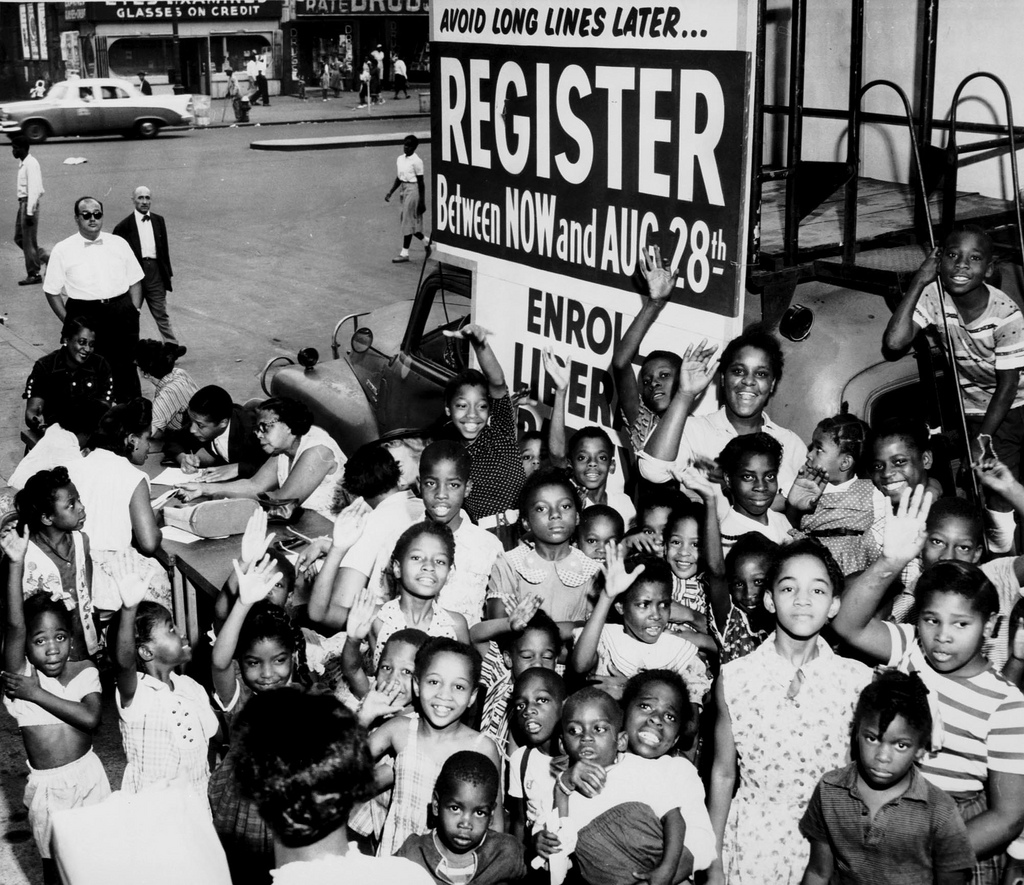
Of course, there are those who believe in a different ethos regarding the political process. Some argue that exclusion based on educational, economic, or criminal history status is acceptable and even necessary in American democracy. And there are those who would argue that all policies regarding voting should not be up to any entity other than elected legislatures, and thus any rational basis the legislature states that doesn’t run afoul of current constitutional provisions should be acceptable. As such, this is the only justification needed from the point of the view of the law.
The courts have tended to support this approach. The U.S. Supreme Court has allowed voter identification laws that do not explicitly implicate racial or other protected categories (and do not serve as poll taxes) to go forward on the rationales of protecting the integrity of the franchise and deterring voter fraud. Similarly, voter purges, the practice of removing registered voters from the voting rolls if they have not voted in recent elections, have been allowed by the federal courts, and the scope and arguable discriminatory effect of these laws is a subject of ongoing litigation. Documentary proof of citizenship laws seek to signal that outsiders are not welcome in the political process. And even though permanent felon disenfranchisement bans are in decline, at least one court has allowed Florida’s plan of requiring the prerequisite payment of all fines and fees that an ex-felon may owe prior to allowing them to vote. Underlying felon disenfranchisement laws, generally, is the premise that breaking the social contract is a sufficient reason to exclude someone from participation in the political community – allowing them to suffer “civil death.”
All of these policies, beyond their legal rationales, are justified on the ground that they are necessary to protect the integrity of the franchise. They go beyond the mere bounds of ensuring votes are cast properly, tabulated correctly, and results reported accurately. These laws send a message that certain persons are unworthy of the vote because of their identity or status. But all too often, this is a myth. Policies like voter identification laws create a threat of voter impersonation that will overwhelm an election, but that threat is virtually nonexistent. Felon disenfranchisement laws create the perception of unworthy outsiders and thus foster a stigma through the enduring presence of such laws. Voter purge laws penalize nonparticipation in the name of maintaining accuracy of the election rolls, which is, in itself an important governmental interest, but to do so rapidly and with little notice is to use administrative process to effectively suppress voters for no fault beyond missing an election. I read these varying rationales as tied around the premise that persons who do not conform to a certain norm of civic involvement and upright status are effectively unworthy to exercise the franchise. This notion of who should vote creates barriers beyond the minimal legal requirements of being 18 or over, a resident of a state and a particular jurisdiction, and a citizen of the United States.
These requirements effectively signal to those on the margins a presumption of unworthiness regarding the franchise to all voters who cannot meet these heightened requirements. As I have argued elsewhere, this kind of signaling serves as an affront to the individual citizen’s dignity in the sense that they cannot be treated equally because they are pressured to prove their worth to exercise their rights as citizens. In this sense, which I think is consistent with what King would argue, these forms of exclusion through requiring a citizen to prove their virtuousness are problematic.
All of us as citizens who care about the political process should be dedicated to ensuring a government that establishes and maintains this norm to express care for our fellow citizens and our political process.
Moreover, these laws are premised on threats to the franchise that are perceived but not proven. Scholars have demonstrated that voter impersonation voter fraud, the basis for voter identification laws, is nearly nonexistent. Similarly, at least one federal court has found that noncitizen voting is so miniscule that it does not justify passing a law directed towards it at the risk of excluding voters who have full rights to cast their ballots. The irony is that election integrity talk based on voter fraud memes actually diminishes faith in elections and dissuades participation from those who believe the system is rigged. This is true especially if these concerns echo the race-targeted voter suppression to which King spoke.
But the larger moral question is the effect of these rules on King’s call to participation as a way of righting the larger wrong discussed in “Give Us the Ballot”—a government that sins through perpetuating the legacy of racial discrimination.
On the level of participation generally, these laws, by effecting (or giving the perception of effecting) an electorate whose citizenship is structured by “tiered personhood,” effectively maintains the kind of structure of segregation of which King complained. This question existed prior to King, and it arguably continues today. The structure that allows felon disenfranchisement, racial gerrymandering, and burdens on access reproduces segregated and diminished political power and makes room for racialized violence. In this sense, there is civic duty to address the problem and to attack this diminished status.
To be clear, there are two separate duties inspired by this calling. First, the duty to ensure that rules that effectively segregate participation should be opposed to the extent that they replicate unnecessary or shaming kinds of discrimination or are not based on objective evidence about the needs of the electoral process. Election integrity is at the end of the day a balance between ensuring integrity of the political process, in the sense of accuracy and fairness of elections, while at the same time promoting inclusion to all citizens. The rules should represent consideration of both of these concerns to prevent the perception that voting systems are for one class or caste of Americans. All of us as citizens who care about the political process should be dedicated to ensuring a government that establishes and maintains this norm to express care for our fellow citizens and our political process.
The second duty is the duty to opposing the legacy of racial discrimination in America. The laws I complain of, as well as the legacies of police violence, housing discrimination, health discrimination, and other ills that have a disparate impact on the basis of race, can be traced back to the legacy of Jim Crow and the effort to perpetuate the caste system that King and many others complained of in the civil rights movements of the 1960s, as well as of the early twentieth century, and even today. Even if the specific policies I mention above are remedied, the underlying ideology still motivates some to reinvent the underlying targeting of people of color to exclude their participation through a different tactic. The duty to oppose this is the ultimate American calling – to remedy the legacy of racial subordination stemming from slavery, which has often been called the “original sin” of the United States.
Of course, this is a collective vision – and that is decidedly the vision that King articulated. We are all called to become what King would call the “beloved community” and to make America closer to this. But I would be remiss in not stating that this vision is in tension with the powerful strain of American individualism and that has originated from the founding of the country. The powerful strain of seeing problems through a lens of individual freedom tends to eschew thinking about these issues of collective responsibility. It separates the present moment from consideration of past responsibility for the acts that created the structures of racial oppression.
The heart of the moral tradition which King espoused demands connection to our fellow human beings as a means to ensure that each human can flourish.
A civic duty to participate in democracy that is disconnected from the history of the United States and the present effects of that history is ultimately hollow. Indeed, the heart of the moral tradition which King espoused demands connection to our fellow human beings as a means to ensure that each human can flourish. And in particular, in terms of the distribution of power, the willingness to aggregate and exercise political power in a way that benefits some individuals without regard to the whole of society ultimately foments the inequality and unrest of which many complain. This tendency towards an individualism that is disconnected from social concerns ultimately seeds conflict.
In this light, perhaps there is a third calling which we ought to consider — a calling to undertake the larger consideration of these norms of individualism and whether they truly fit the collective efforts to which we are called through the collective decision-making of a multi-ethnic, multi-racial democracy. Certainly, this calling will become more urgent as the United States becomes a nation where the majority of voting-age citizens will be people of color, but such governance is nonetheless perceived as not being representative of the population of the United States. The underlying tension here — that a democratic government can be, by design, unrepresentative of the people it governs — is likely one that will generate more strife and political unrest over the years to come.
Accordingly, we owe it to each other to perform our civic duty to vote and to attend to the status of voting and its inclusiveness for all citizens in the United States. It begins with our own participation, but then extends to our obligation to fight the legacies of Jim Crow built within the structures of American democracy that lead to racial exclusion (despite the lack of intension to do that kind of discrimination). This civic duty requires engaging in a way that is conscious of these complexities and making our political decisions aware of our call to be concerned for our neighbor, who may suffer burdens that we do not. It requires democratic consensus to elevate inclusiveness to importance within our democracy, generally, and our democratic practices, particularly. This inclusiveness must transcend partisanship or our prior history of democratic structure. It requires us to think more broadly than our current constitutional constraints and to think creatively about what inclusive democracy means and how the law ought to evolve to achieve that end. King’s vision of “Give Us the Ballot” gives us a starting point for that conversation. ♦
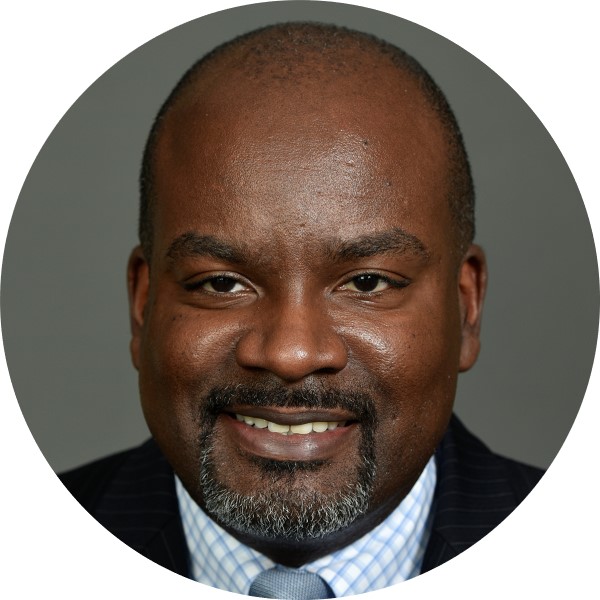
Atiba R. Ellis is a professor of law at Marquette University Law School where he researches at the intersection of election law and critical theory. His recent research focuses on race and the dignity of the right to vote and how the rhetoric of voter fraud intensifies voter suppression. You can learn more and read his research on his website.
Recommended Citation
Ellis, Atiba R. “What We Owe the Democracy: Martin Luther King, Jr., the Right to Vote, and the Call to Civic Duty.” Canopy Forum, November 3, 2020. https://canopyforum.org/2020/11/03/what-we-owe-the-democracy/


